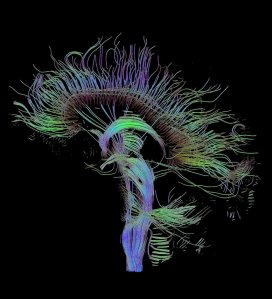What comes to mind when you hear the word ‘grammar’? Red pen marks all over your assignments? Being told there’s something wrong with the way you speak or write? A disgruntled feeling when you see a misplaced apostrophe?
My love of grammar has never been about recognising ‘errors’ in speech or writing. For me it’s a fascination with the beauty of structure. When I was an undergraduate at Washington College I got to play with structure regularly as part of Bob Anderson’s class in symbolic logic.* Then in a music class taught by Amzie Parcell, I had a moment of synaesthesia where logical structure become not just an intellectual experience, but also an auditory and emotional one.
My introduction to the study of linguistics was with John Lyons’s book, Introduction to Theoretical Linguistics. I read the book as part of an MA in English Linguistics I did at the University of Strasbourg. I found Lyons’s words on misconceptions about grammar particularly inspiring:
There are all sorts of social and nationalistic prejudices associated with language, and many popular misconceptions fostered by the distorted version of traditional grammar that is frequently taught in the schools. To free one’s mind of these prejudices and misconceptions is indeed difficult; but it is both a necessary and a rewarding first step. (p. 2)
However, in spouting out my new ideas about freeing our minds of prejudices and misconceptions, I learned that the connection between people’s views about language and their internalised social structures are more intimate than I’d realised.
If we admit there’s an intimate connection between people’s sense of social structure and their sense of grammatical structure, what will that then reveal? What alternatives to unjust social structures can we find?
Download ‘Objective’, ‘Descriptive’ and Other Broken Promises in Linguistics here.
* Here’s Peter Suber’s solution to the logic problem I remember from college. Isn’t it beautiful? Delilah wore a ring on every finger and had a finger in every pie. (x)(y)[(Fxd · Ry) (Oyx] · (x)(y)[(Fxd · Py) Ixy]


One thought on “Episode 3: ‘Objective’, ‘Descriptive’ and Other Broken Promises in Linguistics”